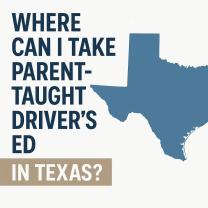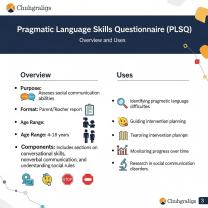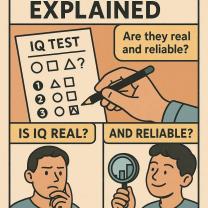How to become a teacher in NC?
To become a teacher in North Carolina, you will generally need to follow a set of steps that include education, certification, and other requirements. Here is a general guide on how to become a teacher in North Carolina:
Earn a Bachelor's Degree:
- Obtain a bachelor's degree from an accredited college or university. The degree should align with the subject area or grade level you wish to teach. If you are interested in becoming an elementary school teacher, you may pursue a degree in elementary education.
Complete a Teacher Preparation Program:
- Enroll in an approved teacher preparation program. These programs are typically offered by colleges and universities and include a combination of coursework and field experiences. The program must be approved by the North Carolina Department of Public Instruction (NCDPI).
Student Teaching Experience:
- As part of your teacher preparation program, you will typically be required to complete a student teaching experience. This involves working in a classroom under the supervision of an experienced teacher to gain hands-on teaching experience.
Obtain a Bachelor's Degree or Higher:
- North Carolina requires teachers to hold at least a bachelor's degree from a regionally accredited institution. Some areas may require a higher degree, especially if you plan to teach at the secondary level.
Pass Required Exams:
- Take and pass the required exams for teacher certification in North Carolina. The exams may include the Praxis Core Academic Skills for Educators (or equivalent) for basic skills, as well as Praxis II Subject Assessments for your specific teaching area. The specific exams required can vary depending on the grade level and subject area.
Apply for a North Carolina Teaching License:
- Once you have completed your education, teacher preparation program, and exams, you can apply for a North Carolina teaching license through the North Carolina Department of Public Instruction (NCDPI). You will need to submit an application and provide documentation of your education and testing.
Background Check:
- Undergo a criminal background check as part of the licensing process. A clear background check is typically a requirement for obtaining a teaching license.
Consider Additional Endorsements (Optional):
- If you are interested in teaching additional subjects or obtaining additional certifications, you may choose to pursue additional endorsements. For example, you may pursue certification in special education or English as a Second Language (ESL).
Professional Development:
- Engage in ongoing professional development to stay current in your field and meet the renewal requirements for your teaching license.
Seek Employment:
- Once you have obtained your teaching license, you can start seeking employment as a teacher in North Carolina. You may apply to school districts or specific schools that align with your teaching interests and qualifications.
It's important to note that specific requirements and processes may vary, and it's advisable to check with the North Carolina Department of Public Instruction (NCDPI) or the licensing board for the most up-to-date information. Additionally, staying in contact with your teacher preparation program advisor can provide guidance and support throughout the process.
Steps to Become a Teacher in North Carolina (NC):
Earn a Bachelor's Degree:
- Choose a subject area you're passionate about.
- Complete an educator preparation program (EPP) within your degree program or as a separate postgraduate program.
- Ensure your degree is from a regionally accredited institution.
Meet Content Area Testing Requirements:
- Pass Praxis Core Academic Skills for Educators (Reading, Writing, and Mathematics) tests.
- Take and pass any additional content area specific tests required for your chosen teaching license.
Apply for a Teaching License:
- Submit your transcripts, test scores, and required application materials to the North Carolina Department of Public Instruction (NC DPI).
- Choose the appropriate license type based on your desired grade level and subject area.
Complete State-Mandated Training:
- Participate in any required training modules, like child abuse prevention and cultural competency.
Find a Teaching Job:
- Network with schools and districts in your desired location.
- Attend job fairs and submit applications through online platforms like TeachNC.
Additional Resources:
- NC DPI Pathways to Teaching: https://www.dpi.nc.gov/educators/educators-licensure
- TeachNC: https://northcarolina.teach.org/
- North Carolina State Board of Education Licensure Information: https://www.teachercertificationdegrees.com/certification/north-carolina/
Educational and Licensing Requirements for Teachers in NC:
- Bachelor's Degree with an EPP: This is the most common pathway. EPPs combine coursework in your subject area with pedagogical training and prepare you for your chosen teaching license.
- Alternative Certification Programs: These programs are designed for individuals who already have a bachelor's degree in another field but want to become teachers.
License Types:
- Standard Professional License: For teaching grades K-12 in a specific subject area.
- Master's Level Professional License: Requires a master's degree in education and offers enhanced salary potential.
- Initial Provisional License: A temporary license issued while completing required training and seeking a permanent license.
Testing Requirements:
- Praxis Core Academic Skills for Educators (Reading, Writing, and Mathematics)
- Content Area Specific Tests: Vary depending on your chosen subject area (e.g., Biology, Mathematics, English Language Arts)
Career Pathways and Opportunities in Teaching in North Carolina:
- Traditional Public Schools: The most common employment setting for teachers.
- Charter Schools: Publicly funded schools with greater autonomy.
- Private Schools: Independent schools with diverse curricula and philosophies.
- Magnet Schools: Public schools offering specialized programs within a specific area.
- Early Childhood Education Centers: Pre-kindergarten and kindergarten programs.
- Community Colleges and Technical Colleges: Teaching vocational and general education courses.
Specialization Opportunities:
- Gifted and Talented Education
- English as a Second Language (ESL)
- Special Education
- Career and Technical Education
Remember: Becoming a teacher requires dedication, passion, and strong communication skills. However, it also offers a rewarding career with opportunities to make a lasting impact on students' lives.
I hope this information helps you navigate the steps to becoming a teacher in North Carolina! Feel free to ask if you have any further questions about specific requirements, programs, or career pathways.













